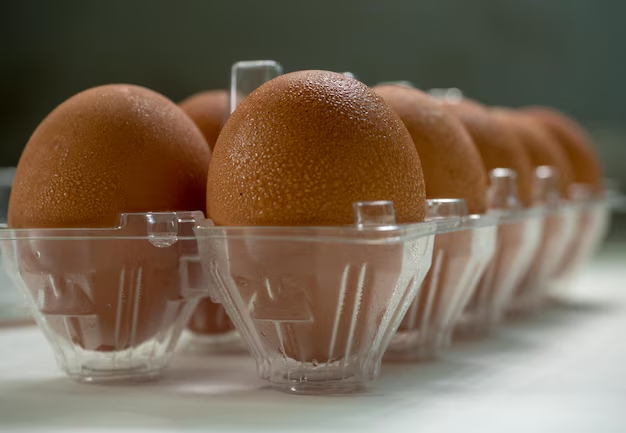How Long Can You Keep Hard-Boiled Eggs in the Refrigerator?
When it comes to food storage, eggs are a staple that many households are keenly interested in preserving. Yet, of all the methods used to store eggs, refrigeration is perhaps the most common. The question that naturally arises is: How long will hard-boiled eggs last in the refrigerator? Let's delve into this topic and explore the various factors that influence the shelf life of these protein-packed gems.
🥚 Understanding the Shelf Life of Hard-Boiled Eggs
The shelf life of hard-boiled eggs differs from that of raw eggs due to changes that occur in the cooking process. Typically, hard-boiled eggs can be safely stored in the refrigerator for about a week. This duration considers a few critical factors, such as the conditions of storage and whether the eggs have been peeled or not.
Key Factors Affecting Shelf Life
Cooking Process: Boiling eggs removes the protective barrier of the shell called the cuticle, which makes them more susceptible to bacterial penetration.
Peeling: Peeled eggs should ideally be consumed within a few days as the absence of the shell increases their vulnerability to contaminants.
Storage Conditions: Eggs must be refrigerated promptly after cooking. If left out for more than two hours at room temperature, it's best to discard them.
📦 Proper Storage Practices
Ensuring that your hard-boiled eggs remain safe to eat involves some basic storage practices. Here are some guidelines:
Before Storage
Cool the eggs quickly by placing them in a bowl of ice water immediately after boiling. This helps prevent the yolk from discoloring and also halts the cooking process.
Dry the eggs thoroughly before placing them in the fridge to avoid any additional moisture which can lead to spoilage.
Storage Techniques
Keep the shells on: For maximum freshness, it's advisable to store hard-boiled eggs in their shells. This helps to protect them and keeps them fresh longer.
Use an airtight container: Store the eggs in a tightly sealed container to prevent them from absorbing odors or flavors of other foods in the refrigerator.
Label and date: Write the boiling date on the container to keep track of freshness.
Peeled vs. Unpeeled Eggs
- Unpeeled Eggs: Best to be eaten within one week.
- Peeled Eggs: Once the shell is removed, consume within three days for optimal taste and safety.
🏠 Significance of Refrigeration
Refrigeration plays a crucial role in extending the shelf life of hard-boiled eggs. The cold temperature slows down the degradation process and limits bacterial growth, thereby maintaining egg quality and safety.
Why Refrigeration Is Necessary
- Bacterial Inhibition: Cold temperatures hinder the growth of bacteria commonly found in eggs.
- Consistency in Temperature: Fluctuating temperatures can hasten spoilage; hence, keeping eggs consistently cool is essential.
📋 Tips for Ensuring Freshness
To make the most out of your hard-boiled eggs, consider these practical tips:
Avoid temperature abuse: Always place eggs in the main body of the refrigerator rather than the door to maintain a steady and cooler temperature.
Check surfaces: Ensure that surfaces eggs come into contact with are clean to avoid contamination.
Handling with Care: Crack one egg at a time to assess quality before using in recipes or eating.
🗓️ When in Doubt, Throw It Out
When it comes to food safety, it’s always better to err on the side of caution. Here are some signs that your hard-boiled eggs may have gone bad:
- Unpleasant odor: A strong, sulfur-like smell is a tell-tale sign.
- Unnatural texture: Chalky or slimy whites and rubbery yolks indicate spoilage.
- Visual changes: Look out for any discoloration or spotting on the egg.
🍴Utilizing Hard-Boiled Eggs
Hard-boiled eggs are versatile and fit into many dietary habits. Here are some exciting ways to use them:
Salads: Chop them into a protein-packed salad for extra texture and flavor.
Egg Salad: Mix with mayonnaise, mustard, and seasonings for a delicious spread.
Snacks: Season with salt, pepper, or other spices for a quick, satisfying snack.
Garnish: Use sliced eggs as a topping for soups, stews, or even pizzas for added taste and presentation.
✅ Quick Summary with Key Takeaways
- Storage Duration: Unpeeled - Up to 7 days; Peeled - Up to 3 days.
- Storage Conditions:
- Cool eggs quickly post-boiling.
- Use airtight containers.
- Store in the fridge immediately.
- Safety Tips:
- Keep eggs in shells if possible.
- Look out for foul odors and discoloration.
- Refrigerate at a consistent cold temperature.
- Culinary Uses:
- Add to salads, make snacks, or use as garnish for versatility in your meals.
Concluding Insights
Understanding how long hard-boiled eggs last in the refrigerator is essential for both health and culinary adventure. By adhering to proper storage practices and remaining vigilant about freshness, you can savor the benefits of this nutritious food, minimize waste, and ensure safety in every bite.

